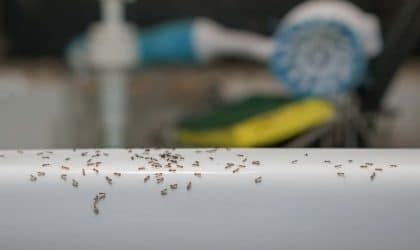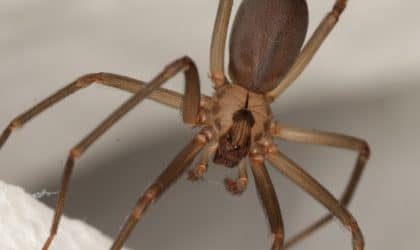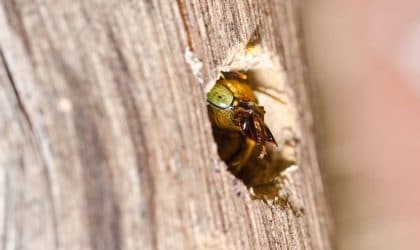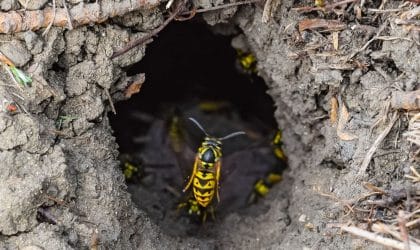The Five Best Mosquito Repelling Plants: Lose the Chemicals
Looking for a natural remedy to keeping mosquitoes away from your home? There are five different plants that can act as a natural barrier to keep these annoying pests away from your home and family.
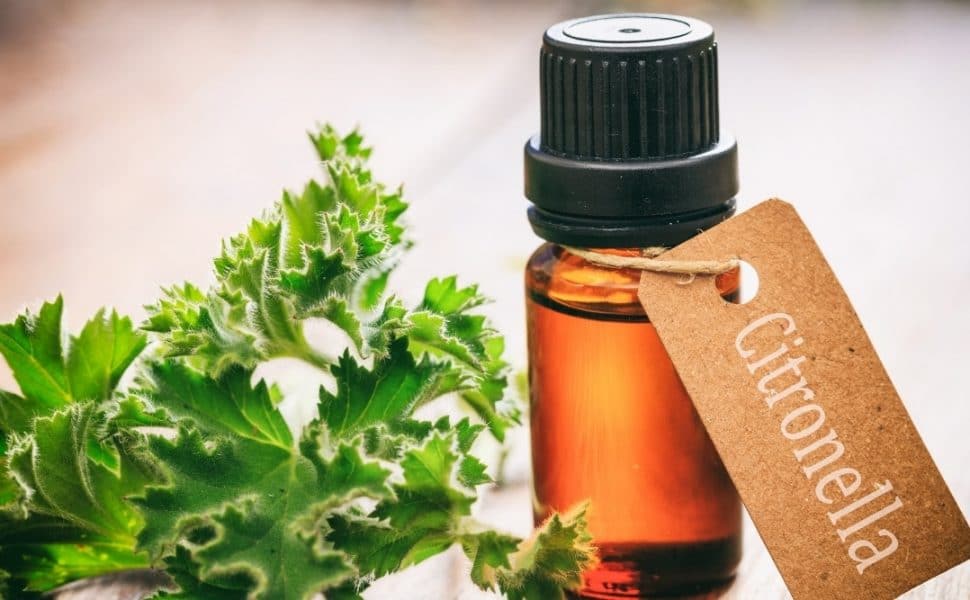
Many of us get bit by a mosquito now and then; some people more than others. But, have you ever asked the question: Why? Mosquitoes are most active around dusk to dawn. And the good news is, there are mosquito repelling plants that you can use to keep these pests away from your home, no matter the time of day.
Many of the humans natural scents or perfumes attract mosquitoes. Mosquitoes are also attracted to lactic acid, but this is only for some species. Smelly feet also attract mosquitoes. So keep your shoes on to avoid mosquitoes. Studies have also shown that mosquitoes can sometimes be more attracted to darker colored clothing than lighter colored clothing.
Mosquitoes are also attracted to candles or fires. So, a good way to keep the mosquitoes away while having a fire outside is putting some mosquito repellent plants around you. Mosquitoes are also attracted to water, for example puddles, but they are also attracted to sweat. Mosquitoes can also pick their next meal by detecting your breath or body heat.
Why Avoid Chemicals – Especially DEET?
Many of the store mosquito repellent sprays that can be purchased contains DEET, which can be toxic, especially on children. You want to find more natural ways to protect your children and yourself from mosquitoes.
You can crush up Catnip leaves and rub them on your skin to repel mosquitos; this is less toxic. DEET can cause rashes and has been proven to cause neurological damage as well. DEET also smells really bad; when you use the plants, you get the fresh smell of plants instead. The reason I bring up Catnip is because it is more effective than DEET. Studies have proven this. Stay away from products with high levels of DEET.
Citronella
Citronella plants are some of the best mosquito repelling plants. The plants have a lemony scent that keeps the mosquitoes away. The plants contain citronella oil, which will repel mosquitoes and is also put in mosquito repellent candles. You can either plant Citronellas in your yard or put them in a pot and keep them on your patio or porch.

The citronella plant can grow up to 5-6 feet tall depending on your climate. Citronella plants are best in 50-60oF, and not into higher temperatures . This plant can grow in pretty much all regions in the United States. Citronella plants are tall tropic looking grasses and are one of the best mosquito repellent plants. The effectiveness of this plant would be better if there were multiple plants. A bonus about Citronella plants are they are low maintenance.
Catnip
Catnip is one of the most effective mosquito repelling plants and is more effective than DEET, which is common in mosquito repellent sprays. Research shows that Catnip is 10 times more effective than DEET. Researchers say they do not really know why mosquitoes do not like catnip, whether it may be the smell of catnip acting as an irritant.
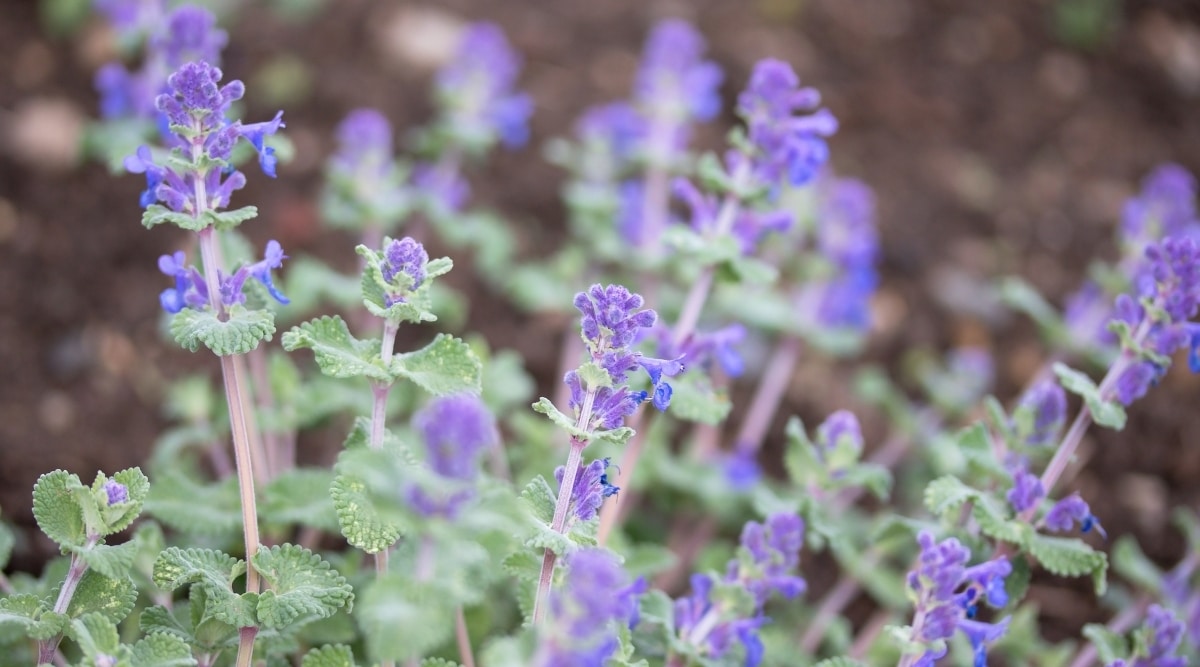
Catnip can be commonly found in weeds and can be found in all regions in the United States. Plant a few Catnips around your pool or outdoor space to keep the pesky mosquitoes away. You can also crush up the leaves and rub them on your skin to repel mosquitoes. The effectiveness of this plant would be better if there were multiple plants together.
To enhance the power of Catnip, you can crush up the leaves to enhance the smell. Then you can spread the crushed leaves around your plant to make the mosquito barrier even stronger. Warning: If you have a cat, you may want to find an alternative plant because cats love this plant, and if you rub it on yourself, they will be attracted to you too!!
Marigolds
The lovely little flowers you always seem to buy at the store are also mosquito repelling plants. Marigolds have a distinct scent that keeps the mosquitos away. However, some humans do not even like the scent of Marigolds.
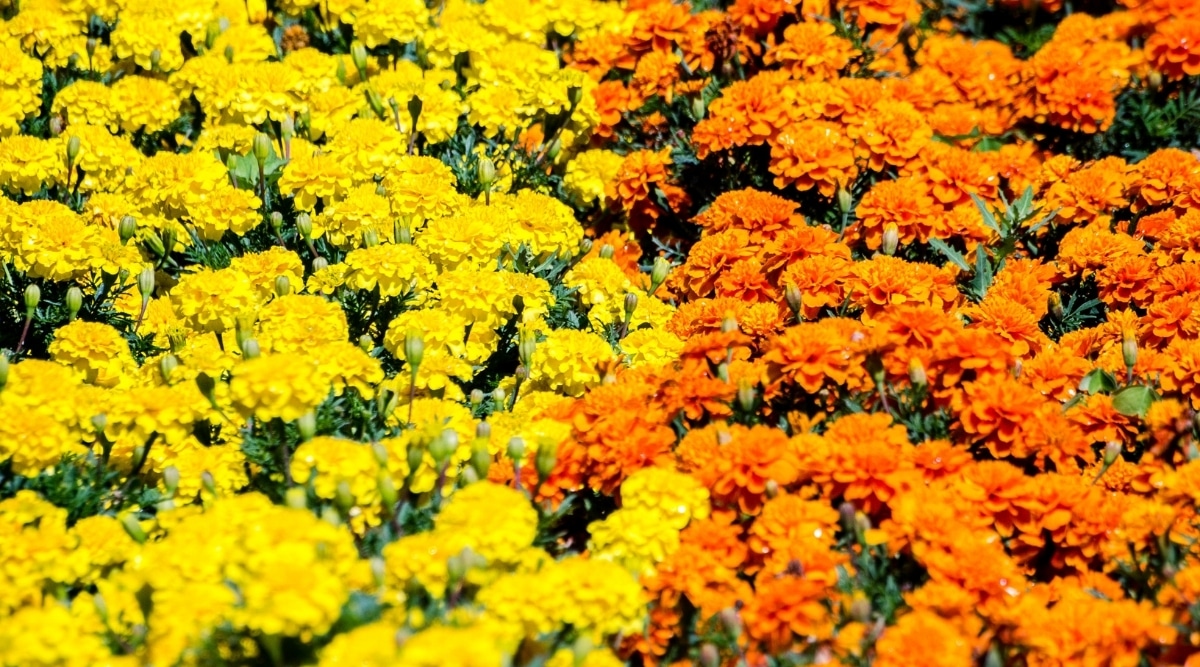
You can just plant marigolds in a pot with fertile soil, and they will grow with sunlight. Marigolds are better with multiple plants planted together to help the mosquito barrier be stronger. You can put the Marigolds by common entrances and exit locations to keep the mosquitoes out. Marigolds can be found in North America and Mexico. Marigolds will do better when you plant them in an area that has a lot of sunlight.
Horsemint
Horsemint, also known as Bee balm, is another one of the best mosquito repelling plants that is a perennial. It helps keep the mosquitoes away because the lemony smell confuses the mosquito and causes it to avoid you.
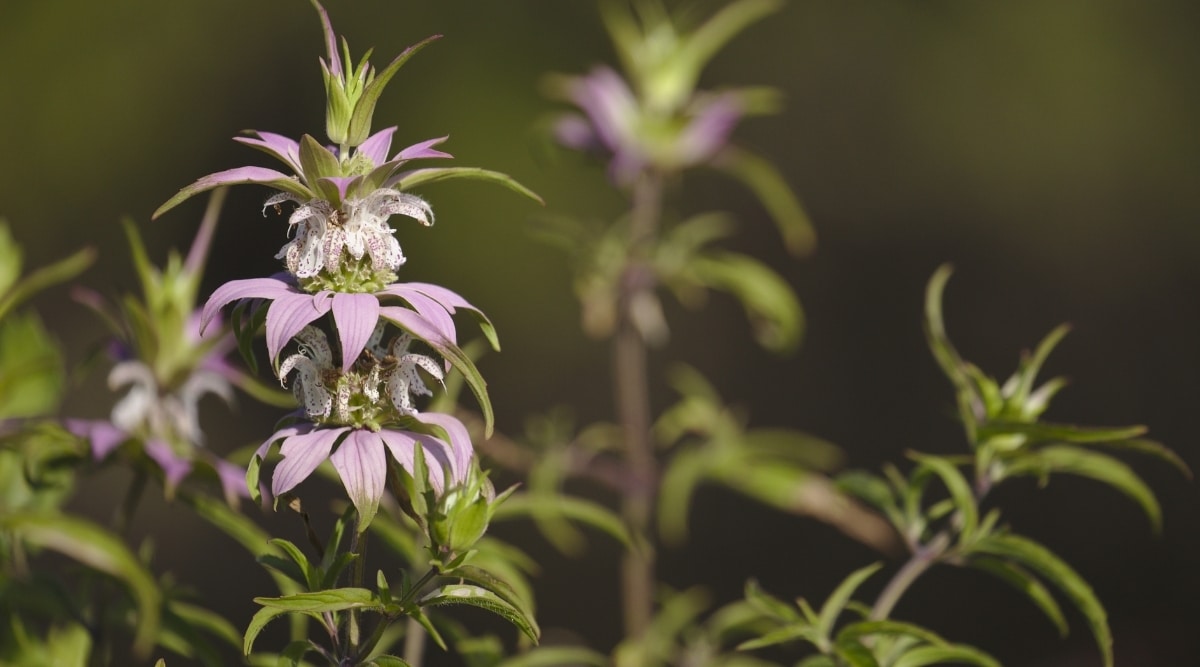
Horsemint can be found on beaches along the coastal regions. It can grow to be 2-3 feet tall and likes the shade. It can be found in sandy soil and does well in dry conditions. Horsemint is better when you have several of the plants together to help make the mosquito barrier more effective.
Ageratum
Ageratum has a distinct smell that mosquitoes cannot stand. It contains coumarin, which is in most store-bought mosquito repellents. Ageratum is better when you have several of the plants together in a pot or the ground to enhance the effectiveness of the barrier. It can be planted in shady areas and does not require rich soil.
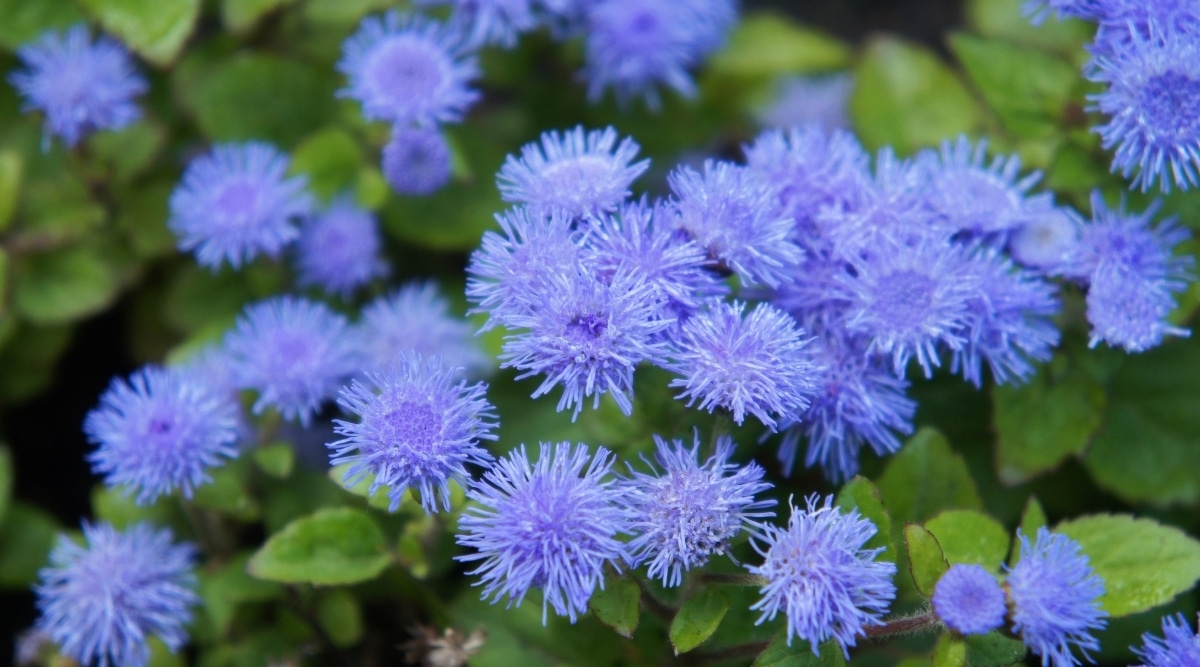
The Ageratum plant is better in a warm climate region. Ageratum can grow up to 8-18 inches tall. However, you do not want to crush up the leaves and rub on your skin. Ageratum can be found in North America and Mexico.
Other Useful Plants:
These plants may not be as strong as the other plants by themselves; but in larger groups, these plants get the job done. These plants are also multi-functional as many of the herbs can be used to cook as well.
Basil is another useful mosquito repellent plant. By itself, it’s not the strongest mosquito repellent plant, but when in large groupings, it is one of the best mosquito repelling plants. Basil needs rich soil and a lot of sun.
The herb Rosemary also has oils in it that can repel mosquitos as well. Rosemary does well in lots of sunlight. Rosemary can survive warmer winters, but in really cold temperatures, it is recommended to bring the plant inside.
Lemongrass can also be effective, as can camphor or other homemade mosquito remedies.
Why use Mosquito Repelling Plants?
Mosquitoes can carry deadly or harmful diseases around with them. Mosquito Borne Disease infects over 300 million people a year. Some of the deadly diseases mosquitoes can carry include Malaria, West Nile Virus, Dengue, and Yellow Fever.
West Nile Virus infects around 30,000 people and kills 1.200 yearly. Malaria kills around 800,000 people yearly, and Dengue kills around 2,200 people a year. There are around 200,000 cases of yellow fever reported each year, and out of the 220,000 people, approximately 25,000 die from it.
Many of the diseases are caused when a mosquito bites something infected, for example a bird. Then the mosquito comes and bites you! The best mosquito repelling plants can decrease your chances of getting one of these diseases.
West Nile Virus
Mosquito Borne Diseases can cause West Nile Virus. West Nile Virus first came to the United States in 1999. It first arrived in New York City. West Nile Virus can be caused by a mosquito bite.
Some symptoms you could have include fever, headaches, muscle weakness, stiff neck, and nausea. Symptoms can be more severe depending on how serious the Virus is. People with weaker immune systems tend to have the more severe cases of West Nile Virus. To avoid this disease, you can buy mosquito repellent plants.
Malaria
You can get malaria in areas with malaria from mosquito bites. Malaria is a type of infection. Some symptoms that are caused by Malaria are fever, chills, headache, nausea, and sweating.
In 1949, the United States was declared free from Malaria. Check to see if you live in an area with Malaria and take precautions. A step you can take is buying mosquito repellent plants to limit your chances of getting this disease.
Dengue
Dengue is yet another infection caused by mosquito bites. This illness emerged worldwide in 1951. Although not very popular in the United States, it is, however, popular in Southeast Asia and South America.
Dengue can appear around 3-14 days after your bite. Some symptoms that are caused by Dengue include moderate to severe fever, headache, muscle/joint pain, pain behind the eyes, and rash. As of right now, there are not any vaccines that have been created to treat Dengue. There are so many diseases that can be caused by mosquitoes, so take precautions seriously.
Yellow Fever
Yellow Fever is another deadly virus caused by mosquito bites. Symptoms can occur 3-6 days after the bite. Some symptoms include chills, jaundice, fever, muscle and back pains, and headaches. Mainly, Yellow Fever exists in countries like Africa and South America.
But, if you are traveling, you should get the yellow fever vaccine. Doctors recommend getting the vaccine at least 10 days before your trip. Severe and deadly diseases can be caused by a mosquito bite. Pay attention to your bites and body after being bit by mosquitoes.
Share this post
Save time and money on pest control
Subscribe to expert DIY pest control tips, pest control product reviews and information.

